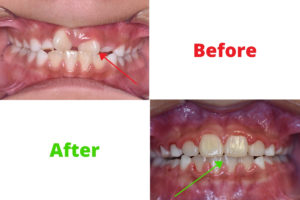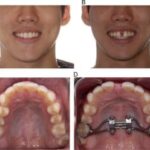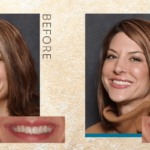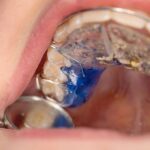The idea that expanders can create gaps in your teeth is a common misconception. In reality, expanders are designed to create space for the teeth to shift and align properly, not to create gaps. The purpose of an expander is to widen the upper jaw, which can help correct issues such as crowding, crossbites, and narrow arches.
How Dental Expanders Work
Dental expanders consist of a metal framework that fits across the roof of the mouth. This framework is attached to the teeth using bands or wires. The expander is designed to apply gentle pressure on the upper jaw, gradually widening it over time.
The expansion process is typically done by turning a small screw located in the middle of the expander. This screw creates tension on the jawbone, causing it to widen. The expansion is usually done in small increments, with the patient or a dental professional turning the screw a small amount each day or week.
Possible Effects on Teeth Alignment
However, in certain situations, the use of dental expanders can lead to more permanent changes in teeth alignment. For example, if the expander is not properly calibrated or if the patient does not follow the prescribed treatment plan, it can result in uneven spacing between the teeth or misalignment of the bite.
Consulting a Dentist for Advice
If you are considering dental expanders as a treatment option, it is crucial to consult with a qualified dentist or orthodontist. They will be able to assess your specific dental needs and determine if dental expanders are the right choice for you.
A dentist or orthodontist can also provide guidance on the potential effects of dental expanders on teeth alignment. They will monitor your progress throughout the treatment and make any necessary adjustments to ensure optimal results.
Possible Effects on Teeth Alignment
Another possible effect of dental expanders is the alteration of the bite. Since expanders work by widening the upper jaw, they can potentially change the way the upper and lower teeth fit together. This can result in an overbite or underbite, depending on the individual case. It is crucial to consult with a dentist or orthodontist to determine if the use of a dental expander will have any impact on the bite and if additional treatment will be necessary to correct any bite issues.
Consulting a Dentist for Advice
When considering dental expanders and their potential effects on teeth alignment, it is always recommended to consult a qualified dentist for advice. A dentist will be able to assess your specific situation and provide personalized recommendations based on your individual needs and goals.
During a consultation, the dentist will examine your teeth and jaw, and may take X-rays or other diagnostic tests to determine the best course of action. They will also discuss the potential benefits and risks of using dental expanders, and answer any questions or concerns you may have.
Additionally, a dentist will be able to provide guidance on the proper use and care of dental expanders. They can explain how to adjust the expander, how often to do so, and any potential discomfort or side effects you may experience during the treatment process.
Regular check-ups with a dentist are also important when using dental expanders. This allows the dentist to monitor your progress, make any necessary adjustments, and ensure that the treatment is achieving the desired results.
Overall, consulting a dentist for advice on dental expanders is crucial to ensure that you receive the most appropriate treatment for your individual needs. Their expertise and guidance will help you make informed decisions about your oral health and achieve the best possible outcome.

Dr. Fidel Cann: Esteemed orthodontist with a lifelong dedication to enhancing smiles and oral health. Pioneering expertise, compassionate care.





